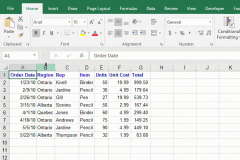WASHINGTON, D.C., April 05, 2023 (GLOBE NEWSWIRE) -- New Oceana-supported research, published in Marine Policy, finds harmful fisheries subsidies from wealthy nations like China, Spain, and the United States are disproportionately impacting poorer nations like Guinea-Bissau, Somalia, and Namibia that depend on fish for food security and livelihoods.
The paper, which expands on analyses prepared for Oceana’s Transparent Oceans Initiative, reveals that 20-37% of all harmful fisheries subsidies support distant-water fishing in other countries’ waters or on the high seas. That equates to about USD $5.3 billion each year.
More than 40% of the harmful subsidies that support fishing in 'very poor” nations, as measured by the Human Development Index, originate from the wealthiest fishing nations.
'Harmful fisheries subsidies, initially designed to boost economic growth by reducing fishing costs, can actually deepen inequity and threaten marine biodiversity,' said Dr. Daniel Skerritt, Oceana’s Senior Analyst, and lead author of the paper. “This subsidized overfishing is damaging poorer nations’ fisheries at a time when climate change has already placed billions of people at risk of food and economic insecurity.”
The study comes as the World Trade Organization (WTO) restarts negotiations to curb the provision of harmful fisheries subsidies. Although a deal was struck by Members last June, Oceana says important issues were left unresolved, including prohibiting subsidies that contribute to overcapacity and overfishing.
Co-author, Director of the University of British Columbia’s Fisheries Economics Research Unit, and Oceana Board Member Dr. Rashid Sumaila said, 'It is vital that WTO Members come together to take bold steps to eliminate subsidies that lead to overcapacity and overfishing, whether in their own waters or the waters of other nations. It is essential to address these longstanding power imbalances to ensure our ocean remains healthy and productive for future generations.'
The authors encourage the nations most impacted by subsidized fishing to strengthen and enforce rules of access to their waters. This could be achieved through an improved WTO Agreement, bilateral access agreements, or other country-to-country negotiations.
Some regions, particularly Africa and Oceania, may require funding to help manage their fisheries, rebuild diminished stocks, and effectively undo the damage caused by subsidized fishing in their waters.
“Redirecting funds that prop up distant-water fishing toward more equitable coastal development, fisheries management, and enforcement, in heavily affected regions would be a positive step,” said Skerritt. “WTO Members should seriously consider adopting the ‘polluter pays principle’ — where those who cause ecological and social harm bear the cost of the repair.”
Oceana is the largest international advocacy organization dedicated solely to ocean conservation. Oceana is rebuilding abundant and biodiverse oceans by winning science-based policies in countries that control one-quarter of the world’s wild fish catch. With more than 275 victories that stop overfishing, habitat destruction, oil and plastic pollution, and the killing of threatened species like turtles, whales, and sharks, Oceana’s campaigns are delivering results. A restored ocean means that 1 billion people can enjoy a healthy seafood meal every day, forever. Together, we can save the oceans and help feed the world. Visit Oceana.org to learn more.
Contact: Anna Baxter abaxter@oceana.org

















